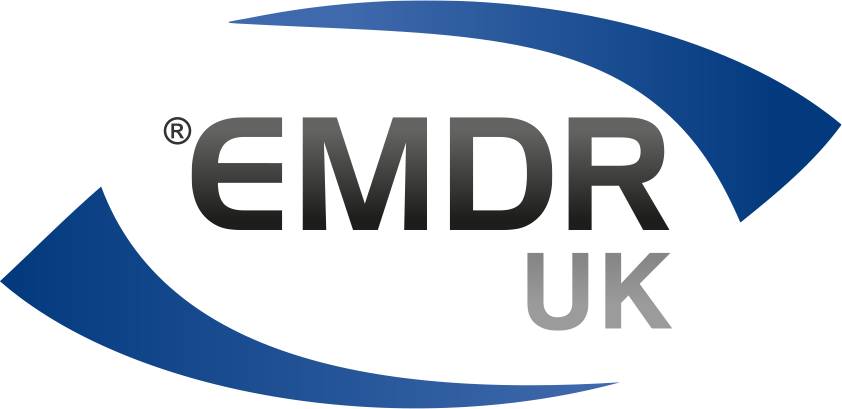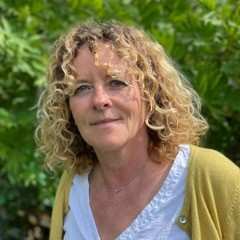Meet the EMDR UK Board Q&A session
Wednesday 11th October 2023, online via Zoom
This was the first of what is hoped will be regular meet the Board events. It was a chance for members to put faces to names and to ask questions that are important to them. Board members present:
- Matt Wesson (president)
- Kath Norgate (treasurer and president-elect)
- Louise Mackinney (secretary to the Board)
- Mike O’Connor (past president).
Questions raised
| Qu 1 | Alison Gorman is an EMDR consultant working in the NHS in Wales. She is part of the all Wales steering group for EMDR, aiming to develop equity in provision of treatment and access to supervision. As part of this initiative various guidelines and templates are being developed in Wales. There is no IAPT service in Wales because of the devolved government and so things are a bit different there. Alison posed the question “who is my point of contact within EMDR UK, so that we can liaise and ensure that what we are doing in Wales is in alignment with what the Association is doing in England?” |
| Ans | Matt said that he would be the main contact in the first instance. He is already in the NHS expert reference group for psychological therapies and he is able to share the NHS England experience. This group needs contacts in Wales and Scotland so this was a timely question. Matt and Alison will connect to discuss further. |
| Qu 2 | Annette Morris asked a question that has been raised before and concerns many members. Negative publicity for EMDR comes up a lot and it is not clear who deals with this within the Association. Annette specifically mentioned the Wikipedia EMDR page which is often a first port of call for potential clients and for therapists wishing to learn more prior to committing to training in EMDR. She mentioned a university course director who said that it is not a good advertisement and that it puts potential trainees and clients off. |
| Ans | Matt acknowledged that this had come up before and he had handed the question to the communications committee and the scientific and research committee. Their post-meeting response follows. Some background work has already been done by the research officer. There are two issues. First is that the EMDR page is not owned by anyone. The very nature of a wiki means that anyone can edit nearly any page. Secondly, the SRC felt that any editing should be a collaborative effort, shared by more than one national association because it is something that affects the EMDR community worldwide and not just in the UK. To this end, the research officer contacted around five national associations including EMDRIA, Canada, Europe, Italy and Australia. All responded and were interested in being involved, but no-one wanted to take the lead and organise substantial and verifiable edits. At present the EMDR page is locked. This has happened to prevent disruptive editing on what is considered to be a controversial page. It is still possible for anyone to edit but you have to create a Wikipedia account and then request permission to edit. You must then provide a specific description of the edit request and of course, reliable sources to support the edit. Potential solutions are for individuals to take on the task of editing following the steps outlined above and for Association members to ensure that the information they provide about EMDR cites reliable sources and to advocate using more than one source so that a representative sample of information can be gathered. |
| Qu 3 | Daryl Joyce wondered how to join a Scottish regional group because several emails appeared to have fallen on fallow ground. |
| Ans | Louise responded that the Scottish regional group actually disbanded earlier this year. However, Oenone Dudley is the regional groups representative and has been trying to get in touch with people in Scotland to gauge interest and set something new up. Anybody who is interested in this please contact Oenone. Matt emphasised that the RGs and the SIGs are key to a healthy and thriving Association and that the Board is keen to support initiatives in this area. |
| Qu 4 | Joe Kearney who sits on the East Anglian RG asked about eligibility for joining the EMDR UK Association on behalf of a GP colleague who is EMDR trained but is not a member of UKCP, BACP or any other psychotherapy governing body. |
| Ans | Matt responded that eligibility criteria are reviewed regularly by the eligibility committee and that they are updated. There is a grandparent clause which accommodates individuals who trained before certain criteria were brought in. Kath noted that if the GP is having supervision by a consultant, there should be a pathway in. The eligibility criteria can be found here, be sure to check the page at intervals because things do change. |
| Qu 5 | As a consultant, Nick Crichton works with many new trainees. A minority come out of training and appear to have a limited knowledge of EMDR, certainly (in his view) insufficient to be practising and calling it EMDR. He suggested that prior to receiving a certificate of completion at the end of a training course, new trainees should complete a knowledge test. |
| Ans | Matt responded as a trainer. EMDR training in the UK is subject to the European Association standards, for criteria, content and accreditation of trainers. In these ways, quality is ensured. Matt agreed that a knowledge test could be helpful and agreed, with Kath, to take it to Richard Mitchell who is the Chair of the European Standards Committee who can take the suggestion forwards. Kath noted that this issue comes up frequently for consultants and that much of the supervision work, especially in the early days of EMDR practice, is formative. A final word on this came from Matt – any consultant who observes trainees graduating from training who are below adequate should bring this to the attention of the Association immediately. |
| Qu 6 | Claire Mason is a consultant working in an IAPT service in Southampton. Over the past 15 years she has been able to use EMDR to treat military veterans with PTSD (pre NG116, 2018) and now, she is unable to do so. She was curious about the Association’s relationship with NICE and about how the Association is addressing the PTSD guidance (NG116). |
| Ans | Matt précised several years of history into two words “it’s political.” He explained how when EMDR UK had offered to sit on the guidance committee the offer was declined and that the evidence used was dominated by US evidence which was largely generated by the US Veterans Association who support TF-CBT as the principal intervention (although this has recently changed). Matt assured everyone that EMDR UK is proactively addressing the situation. A systematic review of all the literature published since 2018 is currently underway (ScHARR, at Sheffield University have been commissioned to do this). NICE no longer do 5 year reviews of guidance but reviews will happen if sufficient new evidence is brought to the table. It is hoped that the results of our systematic review will be sufficient to kickstart that process. The protocol for the review can be found in the Prospero database and the results will be presented at conference in York in March. |
| Q7 | As chair of the West Midland RG, David Pike wanted clarity on whether ex members of the RG who had moved away could still be members? |
| Ans | Louise said that they could not be members of a regional group unless they were living in that region. SIGs are different and open to members wherever they are geographically. David also asked for an increased focus on communication between the Board and the RGs as it seems to be quite a ‘top down” approach at present. Oeneone Dudley is the new RG coordinator and improving communications is part of her brief. |
| Qu 8 | Helen Lea wanted to know if the problems with submitting accreditation forms have been solved? |
| Ans | Matt said that this should have been sorted at least a year ago, however there are a lot of reasons as to why this hasn’t been completed yet. The Association is actively working on this but regular problems are occurring. The accreditation process is being digitalised and it is in beta testing at present. Malcom Muskett said that it would be up and running by the end of Matt’s tenure as president. |
| Qu 9 | Mark Brayne asked about the current status of the relationship between EMDRIA and EMDR Europe. |
| Ans | Matt and Kath responded that there is an issue between EMDRIA and EMDR Europe, but neither were sure of the full details. Matt said the lines of communication were still open and that he was hoping that relationships would improve again. Members will be updated as soon as we have definitive information. |
The meeting ended after this and it is hoped to repeat the process at regular intervals in the future. The Board would like to thank all members who participated and asked questions.




